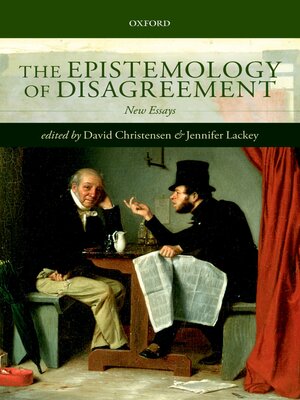
Sign up to save your library
With an OverDrive account, you can save your favorite libraries for at-a-glance information about availability. Find out more about OverDrive accounts.
Find this title in Libby, the library reading app by OverDrive.



Search for a digital library with this title
Title found at these libraries:
| Library Name | Distance |
|---|---|
| Loading... |
The Epistemology of Disagreement brings together essays from a dozen philosophers on the epistemic significance of disagreement; all but one of the essays are new. Questions discussed include: When (if ever) does the disagreement of others require a rational agent to revise her beliefs? Do 'conciliatory' accounts, on which agents are required to revise significantly, suffer from fatal problems of self-defeat, given the disagreement about disagreement? What is the significance of disagreement about philosophical topics in particular? How does the epistemology of disagreement relate to broader epistemic theorizing? Does the increased significance of multiple disagreeing agents depend on their being independent of one another? John Hawthorne and Amia Srinivasan, Thomas Kelly, and Brian Weatherson all weigh in with attacks on conciliatory views or defenses of non-conciliatory approaches. David Christensen and Stewart Cohen take up the opposite side of the debate. Bryan Frances, Sanford Goldberg, and Ernest Sosa discuss a kind of disagreement that will be of particular concern to most readers of this book: disagreement about philosophy. And Robert Audi, Jonathan Kvanvig, and Jennifer Lackey tackle some general theoretical issues that bear on disagreement. The philosophers represented here include some who have contributed actively to the disagreement literature already, as well as some who are exploring the issue for the first time. Their work helps to deepen and expand our understanding of some epistemic phenomena that are central to any thoughtful believer's engagement with other believers.







